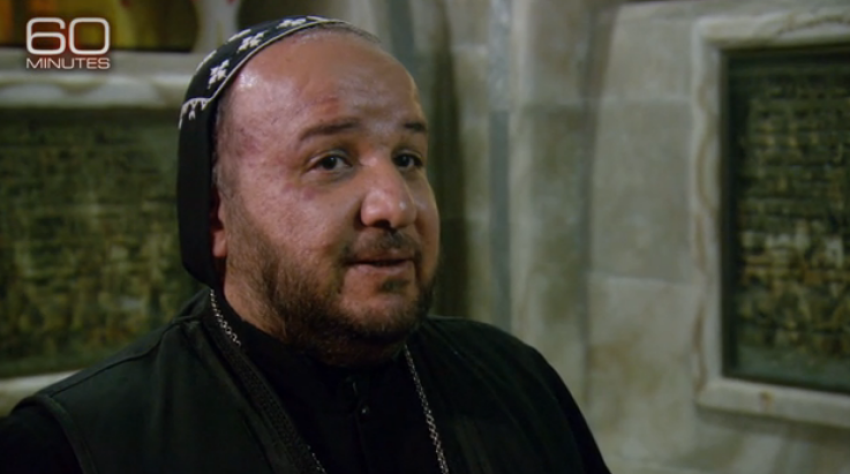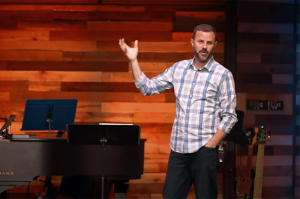'Persecution Follows Us ... We Can't Run From It': Christian Monks in Iraq Refuse to Leave Ancient Monasteries Despite ISIS Threat

Holding out in one of the oldest Christian monasteries in the world, located in Iraq's Northern Ninevah Plains region, three monks and a half dozen students vow to stay put despite the possibility of being overrun by ISIS fighters.
U.S. Today reports that the 1,600 year old St. Matthew's Monastery is constantly under threat and just mere miles from the frontlines in the battle against ISIS. Many of the monks and villagers in the town fled in August of 2014 when ISIS gained more ground in the surrounding area near Mt. Alfaf, Iraq.
"We can see the battles and the airstrikes from here in front of us, especially at night," Yousif Ibrahim said. "The sky lights up at night, but we of course are not scared. God protects us."
St. Matthew's is being protected by the Kurdish Peshmerga military, which is now the last line of defense for the monastery, monks, and students.
Ibrahim has vowed to stay in the region until the last Christians are driven out from Iraq. "The shepherd cannot leave his sheep," he added.
Sahar Karaikos is one of six students at St. Matthew's and fears for the monastery more so than for his life.
"We are not scared, because our teachers give us a feeling of peace here, but we know we are on the frontlines, and in seconds the Islamic State could be here," Karaikos said. "I don't even want to think or speak about the destruction the Islamic State would cause if they took our monastery."
Karaikos added that ISIS "does not understand what history means, they just understand the breaking of history.
"If a people don't have the history of their past," Karaikos continued, "then they will not have a future because they won't know what their origins are, where they came from."
Chistians in Iraq can trace their history to the first century apostles. Prayer services at St. Matthew's are spoken in Aramaic, the language of Jesus.
Many of the relics and books from the monastery, some from Christianity's first century, have been moved to safer Kurdish areas further north in Iraq. The bones of St. Matthew, a fourth century Syriac Christian saint who founded the monastery, were moved because of the potential desecreation of the burial site by ISIS.
"Saint Matthew ended up here because he was fleeing persecution, but persecution follows us," Karaikos said. "We can't run from it, we have to stand in front of our history."
In March, Iraqi rchbishop Bashar Warda stated the only way to stop the Islamic State and preserve Iraqi Christianity is by defeating them militarily. "Sometimes you take some hard measures, unfortunate measures, to deal and treat this cancer," he told "60 Minutes."
The Chaldean Patriarch in Iraq, Raphael Louis Sako, testified at the United Nations Security Council in New York last March: "The Islamic extremists groups refuse to live with non-Muslims.
"They are persecuting and uprooting them from their homes; and erasing all traces of their history. We are facing a cultural and ideological crisis which monopolizes power, disables institutions, and restricts freedom," the Chaldean Patriarch asserted.
St. Matthew's monastery, founded in 363, has survived the Ottoman and Persian Empires, Mongol invaders, and Kurdish conquests.
Nicodemus Sharaf, Archbishop of the Syriac Orthodox Church in Mosul, Iraq's northern city now under the control of ISIS, told "60 Minutes," "They take everything from us, but they cannot take the God from our hearts, they cannot."



























